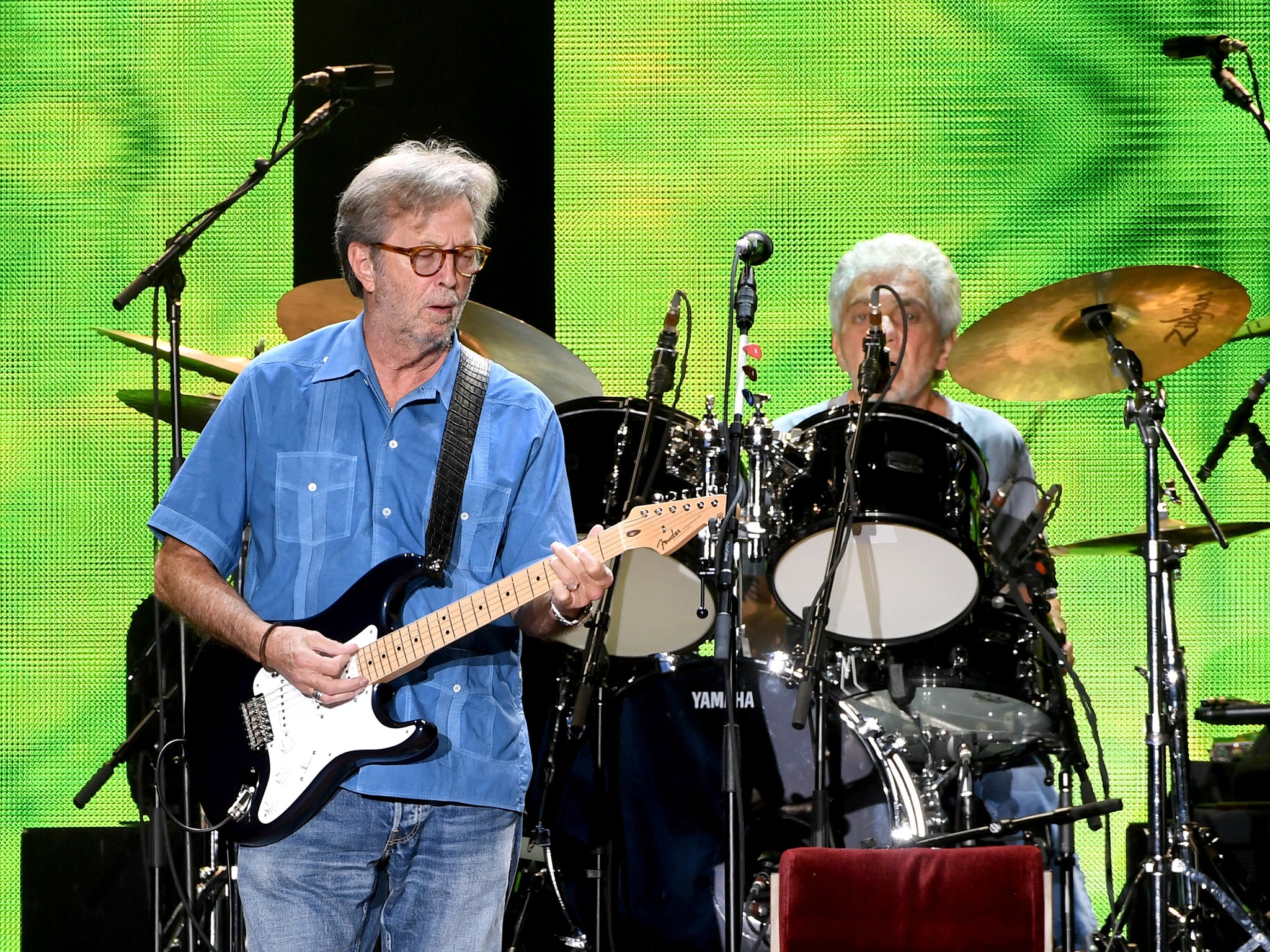Surprised Eric Clapton is a conspiracy theorist? Don’t be
Surprisingly few people know about the rock star’s long history of egregious awfulness


Your support helps us to tell the story
From reproductive rights to climate change to Big Tech, The Independent is on the ground when the story is developing. Whether it's investigating the financials of Elon Musk's pro-Trump PAC or producing our latest documentary, 'The A Word', which shines a light on the American women fighting for reproductive rights, we know how important it is to parse out the facts from the messaging.
At such a critical moment in US history, we need reporters on the ground. Your donation allows us to keep sending journalists to speak to both sides of the story.
The Independent is trusted by Americans across the entire political spectrum. And unlike many other quality news outlets, we choose not to lock Americans out of our reporting and analysis with paywalls. We believe quality journalism should be available to everyone, paid for by those who can afford it.
Your support makes all the difference.English guitarist Eric Clapton is perhaps best known for being immortalized in graffiti which declared “Clapton is God.” Today that graffiti might read instead “Clapton is a public health disaster.”
Clapton has spent most of the Covid pandemic trying to undermine expert medical advice. Like fellow aging irresponsible crank Van Morrison, Clapton has opposed lockdowns. Now, he is claiming his temporary adverse reaction to the vaccine is a sign that the vaccines are dangerous. Scientific studies, expert opinion, and public health recommendations to the contrary are, in his words, “propaganda.”
This is far from the first time that Clapton has been impressively horrible in public. He has a long history of stepping into the public sphere and showing every part of his posterior. Yet, in the United States especially, few people know of his history of egregious awfulness. Clapton is a decades-long lesson that cancel culture does not exist — and a strong argument for why it should.
Any discussion of the worst of Clapton has to start in August 1976. At a Birmingham concert. Clapton urged the audience at the venue to support Enoch Powell, a viciously anti-immigrant conservative politician, and reportedly added that he thought Black people — which he referred to by using two different offensive slurs — should leave the country (no recording exists to confirm his actual wording, but multiple eyewitnesses have reported that these are the words Clapton used, and he himself has acknowledged the rent and apologized for it.)
Clapton’s openly racist rant was widely reported in the UK; it helped spark the Rock Against Racism movement. In the long term, and especially in the US, though, it didn’t have much effect on Clapton’s reputation or record sales. Nor was Clapton exactly repentant. In a 2004 interview, he called Enoch Powell “outrageously brave,” and again bemoaned the presence of immigrants in the UK. In 2007, he again said he supported Powell, and denied that Powell was racist.
When he did finally issue an apology in 2018(!), it was full of weaselly excuses. He said he was “disgusted” with his past comments. While in the throes of addiction, he added, “I sabotaged everything I was involved with” — as if the main problem with his statements was that they harmed his career. He also confusedly called himself a “semi-racist,” though there was nothing “semi” about his 1976 comments. He then insisted he had Black friends and boasted that he “championed Black music”.
Clapton abused his wife, which he also blamed on his addiction (you may be noticing a pattern.) “There were times when I just took sex with my wife by force and thought that was my entitlement,” he told The Sunday Times while discussing his alcoholism. Few are familiar with this side of the story, though. When most people recall Clapton’s family life, they know only that his four-year-old son died tragically after falling from a window, inspiring the late-career 1992 hit “Tears in Heaven.”
Opponents of cancel culture would, presumably, be thrilled with the arc of Clapton’s career. Indeed, the guitarist’s racism and misogyny hasn’t stopped him from being inducted into the Rock and Roll Hall of Fame three times.
But for those of us who would like people to stop dying during this pandemic, Clapton’s impunity seems less awesome. Thanks to that lack of canceling, most people know Clapton as a critically acclaimed rock star rather than as a one-time abusive husband and a former racist. When Clapton pops up to spread public health disinformation and cosign reactionary conspiracy theories, he does so as a beloved media darling. Because he’s never really been made to answer for his past, he is in a position where he can do harm.
People deserve a chance to change; no one is defined by their worst moments. But Clapton keeps piling up worsts, with the wearisome predictability of his staid blues licks. The mediocre music is forgivable. The ugly effort to prevent the spread of a deadly pandemic is less so. At this point it seems unlikely Clapton will suffer any real financial or reputational consequences for his decades of racism, violence, and then ignorant conspiracy-mongering. But he should.
Join our commenting forum
Join thought-provoking conversations, follow other Independent readers and see their replies
Comments